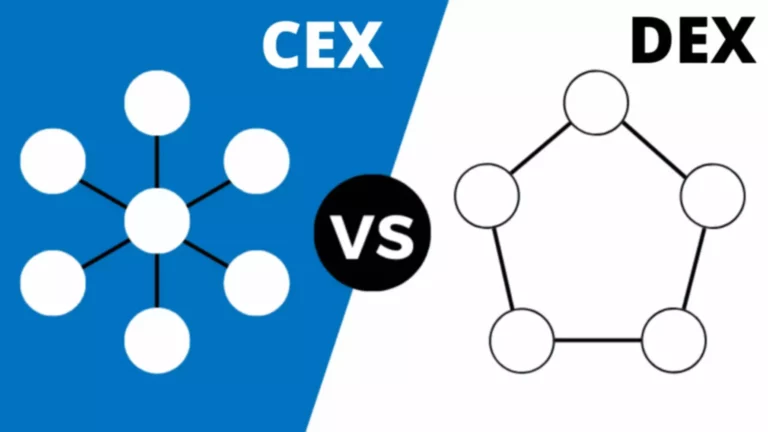Content
The stock prices from dark pool trades still show up in dark pool software the traditional exchange feeds, but a blank field is presented where there would typically be an “exchange” variable to explain which exchange the trade happened on. Agency-broker dark pools are another common private trading system that acts as agents instead of a principal. These exchange-owned dark pools do not involve price discovery because they use the National Best Bid and Offer model to reach a price midpoint. A well-known example of a dark pool platform is «JPM-X,» owned by JPMorgan Chase, one of the largest banks in the United States.
How do dark pools affect stock markets?
In general, there are Yield Farming three primary methods for creating and maintaining liquidity through dark pools. First, when dark pool operators act as systemic internalizers (see Section 3), liquidity is enhanced by leveraging retail flow. Second, brokers direct public liquidity to dark platforms, thereby removing liquidity from public markets that could affect price discovery. Third, a significant amount of liquidity is provided by linking dark pools to other alternative venues.
What is the difference between dark pools and insider trading?
- Also, they lower fees for day traders and provide competition for exchanges.
- These dark pools only generally have the bigger players involved which means that their orders can more favorably be matched by pool operators.
- Factors such as supply, demand, participants’ willingness to trade, past information, and other external events affect these prices.
- Dark pools are primarily used by large institutional investors, hedge funds, and banks that engage in high-volume trades.
- In that system, investors’ orders would be made public on the consolidated tape as soon as they were announced, which traders characterized as «playing poker with your cards face up».
- Retail trades started to be executed on dark pools to help liquidity for institutions, while not holding any real benefit for retail.
The framework emphasizes pre- and post-trade transparency requirements for equity transactions across all platforms (Panagopoulos, 2021). Importantly, MiFID enables conventional exchanges to face competition from other venues across all Member States, thereby reducing barriers to entry for new trading venues. With the ability to compete for volume across a broader range of instruments, new venues have more opportunities to participate in the market. Additionally, to encourage competition between established and new trading venues, MiFID has introduced a regulatory framework for the main types of order execution arrangements in the European financial marketplace. MTFs may https://www.xcritical.com/ be registered and operated by investment firms or other operators, thereby narrowing the gap in requirements between regulated markets and MTFs [9]. In reality, dark pools can be quite beneficial as a whole for stock markets and their prices.
Preview some of TrendSpider’s Data and Analytics on select Stocks and ETFs

(2019), “Did Spillovers from Europe indeed contribute to the 2010 US flash crash? The test for materiality under New York law “is whether defendant’s representations, taken together and in context, would have misled a reasonable investor about the nature of the investment”. A versatile writer in a wide range of concepts, specifically in Web3, FinTech, crypto and more contemporary topics. I am dedicated to creating engaging content for various audiences, coming from my passion to learn and share my knowledge. I strive to learn every day and aim to demystify complex concepts into understandable content that everyone can benefit from.
Pros and Cons of Dark Pool Trading
Justin Schack, vice president for market structure analysis at Rosenblatt, pointed out that dark pools may have different views about this based on their business model, their clients and the sensitivity of the flow they execute. Although many dark pool operators provide some minimal public volume statistics, most provide their clients with much more information. GSET, for instance, gives customers end-of-day reports about their Sigma X and dark pool executions, including execution-quality statistics about their order flow that traded in Sigma X. Banks and other financial institutions typically run the pools with broker-dealer licenses; the common examples include JP Morgan, Goodman Sachs, and Barclays.
When individual investors push the buttons on their phones and computers to place trades, in many cases their orders never make it to the New York Stock Exchange, Nasdaq or other traditional exchanges. Instead, those orders get diverted to electronic platforms run by private market-makers who match buyers with sellers at a price they determine, behind closed doors. By leveraging advanced technology and liquidity aggregation, sFOX seeks to provide traders with access to deep pools of liquidity while minimizing the impact on the broader market. The platform emphasizes security and compliance, catering to institutional investors and high-net-worth individuals looking to execute large cryptocurrency trades. Electronic market maker dark pools are known for their high-speed trading and ability to handle large trading volumes. They can also provide tighter spreads compared to traditional exchanges.
With the increasing reliance on trading through technologically advanced systems, automated limit orders create nearly continuous fluctuating liquidity (Kraa, 2011). Consequently, the need for conventional market makers to guarantee liquidity has diminished over time. In today’s financial markets, continuous trading is typically facilitated by a limit order book system. However, dark pools do not display quotes and lack market makers or visible limit order books, necessitating alternative means of providing liquidity.
Given the volume of trading happening in Dark Pools, it’s imperative that you keep a pulse on dark pool data. It is a critical component of any smart investment strategy, and it’s important information to display to end users if you are building investment and trading applications. Private stock trades and exchanges raise concerns and criticism from multiple operators and traders because of the following disadvantages they create. Other critiques of these pools indicate that the lack of reporting and price disclosure may lead to misleading information and conflict of interest. The SEC doubled down on dark pools, calling for a trade-at rule for the traders to act in good faith.
Join millions, easily discover and understand cryptocurrencies, price charts, top crypto exchanges & wallets in one place. While some of the top cryptocurrency exchanges are, indeed, based in the United States (i.e. KuCoin or Kraken), there are other very well-known industry leaders that are located all over the world. For example, Binance is based in Tokyo, Japan, while Bittrex is located in Liechtenstein. While there are many reasons for why an exchange would prefer to be based in one location over another, most of them boil down to business intricacies, and usually have no effect on the user of the platform. The content published on this website is not aimed to give any kind of financial, investment, trading, or any other form of advice.
There are a few disadvantages of using these alternative trading systems. First, they don’t promote transparency when trading the financial market. These dark pools are owned by exchanges like the NYSE, Nasdaq, and BATS. These dark pools are mostly used by high-frequency traders and usually tend to provide liquidity to the market. This is not the case when trading with dark pools, as dark pools are not accessible for the general public and do not reveal the identity of the selling company. That kind of information staying private can make a huge difference to the overall market reaction to the bulk sale of shares.
JPMorgan Chase provides its clients and institutional investors with the ability to execute large-volume trades through this platform. Dark pools are platforms where large investors and institutional funds can execute high-volume trades without being visible in the market. These platforms allow transactions to be conducted off-exchange, preventing sudden price fluctuations that could occur when large amounts of securities are bought or sold. Dark pool is an alternative trading system that is offered by independent companies, broker-dealers, and investment companies. They help large investors and small market participants get involved in the market anonymously. A dark pool is an alternative trading system (ATS) that allows large buyers and sellers to execute orders without moving the market significantly.

The act empowers the Attorney General to regulate and investigate economic fraud. Schneiderman aimed to protect and enhance investor confidence and ensure market effectiveness for the general public by preventing the substantially unfair situations created by HFT trading techniques. In January 2016, Barclays settled for $70m with the SEC for misconduct, as customers were misled about the management of their dark pool orders. According to the complaint, the investment bank altered “material purporting to show the extent and type of high frequency trading in its dark pool”, and the proportion of aggressive HFT activity in its dark pools [11].
This is consistent with the observation that informed traders face lower execution probabilities in the dark relative to uninformed traders. By disproportionately reducing the number of uninformed trades in the lit market, high levels of dark trading could increase adverse selection risk in the lit market, leading to wider bid-ask spreads. As a result, dark trading may reduce the overall amount of information produced about fundamental values.
As we mentioned earlier, larger trading firms can execute pinging tactics which could impact the pricing of the shares you are trying to buy. While there may have been calls for more regulation of dark pools of late, there is still a chance that you fall prey to unethical trading practices that are essentially conflicts of interest with larger trading firms. With the implementation of MiFID II in Europe earlier this year (more to come on this topic in later blogs), the EU is pushing for more transparency and for more activity to take place on public exchanges. The full impact of these regulations is still being understood, but for now dark pools continue to thrive.
This process is done quickly and secretly to avoid information leakage or front running. Credit Suisse CrossFinder is a famous dark pool that uses algorithms in electronic trading systems. Other examples of broker-dealer dark pools are Goldman Sachs’ SigmaX and Morgan Stanley’s MS Pool.
Deja una respuesta